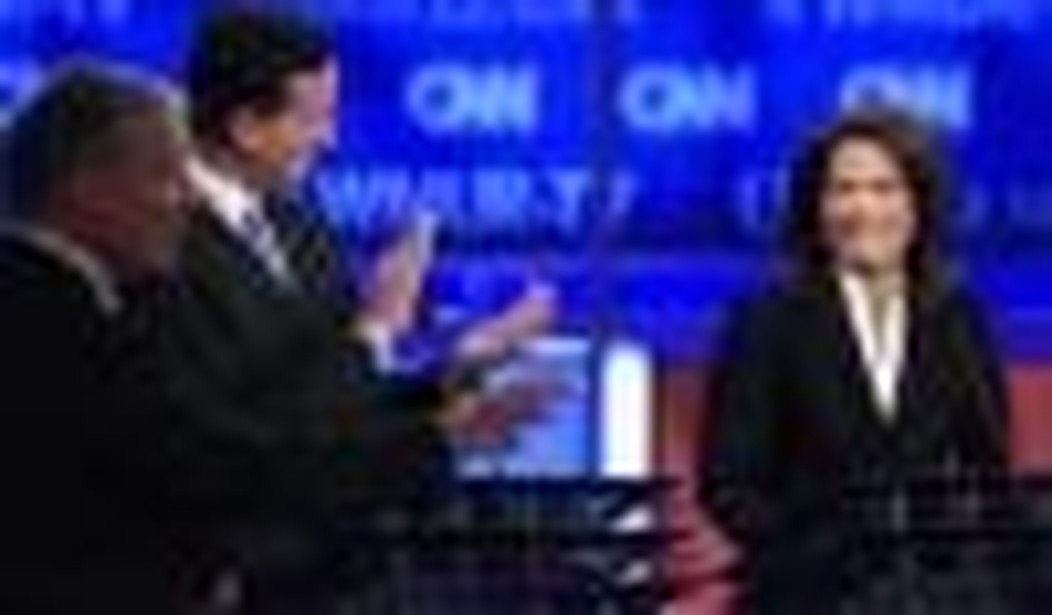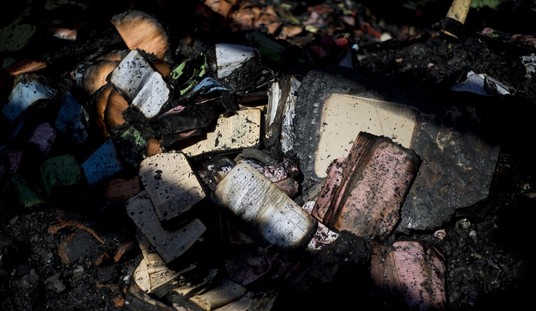Tonight’s debate is the first since Newt Gingrich rose to the top of the pack and luckily for him, it is about foreign policy and national security. The dividing lines will be on the wars in Afghanistan and Libya, foreign aid, and China.
Newt Gingrich will emphasize that he’s a historian and that he’s the longest-serving teacher of a Joint War Fighting class for generals and admirals. He was arguably the winner of the last debate on foreign policy and will likely do well again. His policy towards Iran is one of regime change, calling for an adaptation of the model used to bring down the Soviet Union. The persecution of Christians in the Islamic world will be mentioned and it is probable he’ll repeat his pledge to sign an executive order enabling the U.S. embassy in Israel to move to Jerusalem.
Gingrich’s weak point will be his convoluted position on the war in Libya. On March 7, he called for immediately establishing a no-fly zone, only to say on March 23, “I would not have intervened. I would not have used American & European forces.” He then said that he meant that if he were president, military intervention wouldn’t have been necessary because he would have used covert action against Gaddafi.
That explanation would be acceptable if the contradictions ended there. He said that the rationale for the war made no sense and that it was motivated by “opportunism and news media publicity.” Yet he criticized President Obama for making the U.S. look weak by being too soft on Gaddafi. Also, by his own admission, Gingrich favored action against the Libyan dictator. He said that anything less than Gaddafi’s removal would look like a defeat for the U.S., but then he supported cutting off funding for the war because President Obama violated the War Powers Act. These stances can be delicately synthesized, but it won’t be easy to do so in a coherent sound bite.
If Gingrich’s rivals want to attack him rather than wait to see if the media spotlight brings him down, he can be criticized by Bachmann for supporting intervention; by Santorum for opposing the war; and by all for flip-flopping.
Mitt Romney’s strongest point on foreign policy has been China, where his economic expertise and knowledge of foreign policy intersect. He will again vow to label China as a currency manipulator and to report them to the World Trade Organization. Like Gingrich, he has been unclear on Libya. He criticized Obama for waiting too long to intervene but then described regime change as “mission creep and mission muddle.” This could be another flip-flop that his opponents list.
Romney’s biggest weakness is on Afghanistan. It was very surprising that none of his rivals pounced on him during the last debate when he criticized Obama’s policy but then endorsed the timeline to withdraw all combat forces by 2014. The only difference is that Romney would bring home the additional troops that were sent as part of the surge next December, not September — a difference of only three months. It will be shocking if they pass up the opportunity again.
Herman Cain has to perform very well or he is at risk of never being taken seriously again as a commander-in-chief. His last foreign policy debate performance was widely panned. His gaffe on Libya was more unsettling than Perry’s senior moment. He appeared not to know that China has nuclear weapons. He asked Floridians how to talk in “Cuban.” He stated that we “need a leader, not a reader.” And that’s just what’s happened this month.
His answer on Iran during the last debate shows that he can give good answers if he’s expecting them, but he’s got to really impress the audience this time. Repeatedly saying he’ll pick the right advisors isn’t going to work anymore. In the early debates, he’d talk about confronting Sharia law and would win major applause. He’d be wise to do it again.
Ron Paul is rising in the polls in Iowa and so he should get more attention than he’s gotten. His consistency makes him predictable. Expect the usual from Paul, and expect the other candidates to use him as a punching bag to show off their own foreign policy credentials.
Rick Perry’s comments on starting all foreign aid at zero were well-received by the audience, as was his ridicule of aid to Pakistan while the government helps kill our troops. He was criticized for this by Santorum and Bachmann, who warned of the perils of undermining the Pakistani government, but primary voters are far more receptive to someone who will share their frustration with our tolerance of Pakistan’s treachery. However, the position does open him up to be accused of opposing aid to Israel.
Perry is in a contest with Romney over who will be the toughest candidate on China. During the last debate, he said that “Communist China” will “enter the ash heap of history” if it doesn’t change its ways. Romney says we are already in a trade war with China.
Michele Bachmann has to knock it out of the park. In a poll documenting Cain’s collapse in support among Republican women in Iowa, she still backslid. While every other candidate gained, she fell from 8% to 5% total. That means that Republican women who left Cain looked at all the other candidates and chose everyone but the Republican woman.
She did a great job of sounding like a policy wonk on Afghanistan during the last debate. Unlike the others, she can point to her access to classified intelligence by being on the House Intelligence Committee in informing her assessments. She opposed the war in Libya entirely and can take it to the others who supported it or have failed to take a consistent stance on the issue.
This is Rick Santorum’s last and best chance to catch on with voters. Foreign policy is where he shines. He has the most detailed plan on Iran. He has two problem areas, though. First, he supports the war in Libya, saying the U.S. needs to be a force for good around the world but criticizing Obama’s indecisiveness. During the last debate, he spoke at length about how the U.S. needs the Pakistani government as an ally and that allies “work through their problems.” When asked about what to do if a Pakistani nuke got loose, he said he’d try to cooperate with the ISI intelligence service — the same one killing our troops. Talking positively about the Pakistani government isn’t exactly a winner.
Jon Huntsman has made his ambassadorship to China a key part of the case for his candidacy. He argues that he’s the only one with any real foreign policy experience and so this debate is crucial for his campaign. He has positioned himself as the dove of the race that isn’t Ron Paul. He will take on Romney and possibly Perry for their confrontational attitudes towards China (which won’t be a crowd pleaser) and point out his consistent opposition to the war in Libya.
He’ll again call for an immediate drawdown of forces from Afghanistan, reducing the mission to training Afghan security forces and special forces for counter-terrorism missions. This sounds appealing, but his opponents should challenge him on how these tasks can be successfully accomplished with a much smaller footprint.
This is the last debate on foreign policy and national security. With the economy dominating the campaign, it is likely these topics will barely be touched upon during the remaining debates. Tonight’s debate will decide who will become the candidate of the national security voters.









Join the conversation as a VIP Member